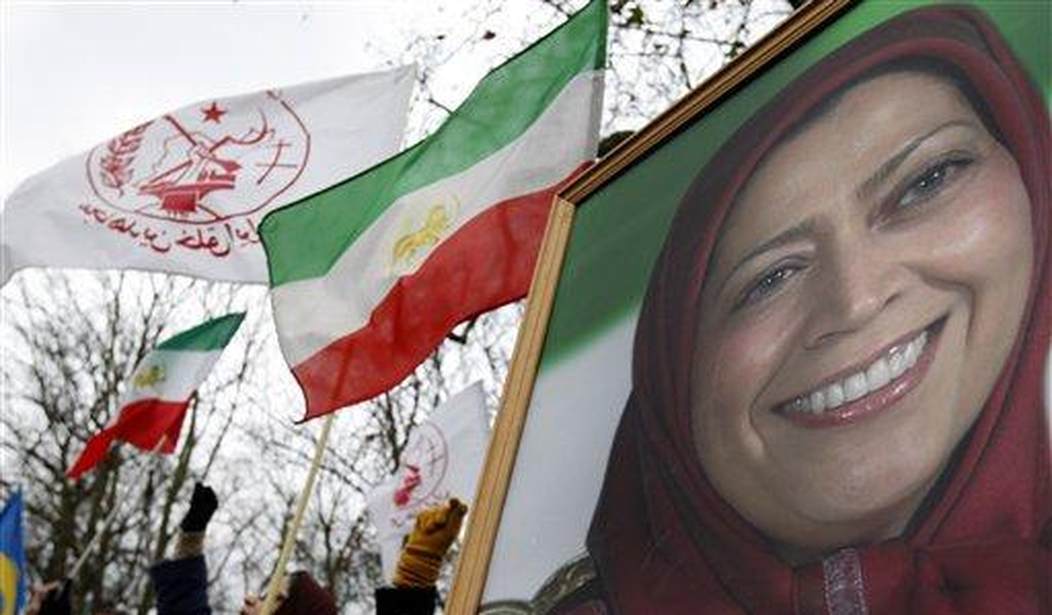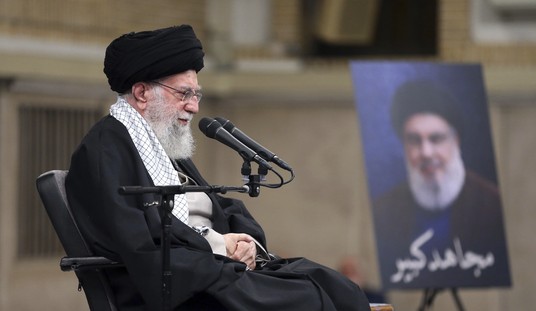Dwight Eisenhower, the 34th U.S. president and a decorated war general, once said: "Peace and justice are two sides of the same coin." If Europe wants to preserve peace, it should find it paramount to deliver justice against an Iranian diplomat soon to be prosecuted on terrorism charges. Moreover, from a political perspective, European nations need to send a powerful message to Tehran's terrorists that the age of terror campaigns is over.
Tehran's 2018 bomb plot was the stuff of detective novels, yet there was nothing fictional about it. It could have led to an astounding level of carnage.
In June 2018, two Iranian nationals were arrested in Belgium on their way to bomb a huge Iranian opposition rally in the heart of France. Shockingly for the Europeans, a third detainee turned out to be a sitting Iranian diplomat, who provided the explosives.
On a sunny day in Luxembourg on June 28, 2018, a couple, Amir Saadouni and Nasimeh Naami, met with a shadowy Iranian "diplomat." The couple had worked with him and the regime's intelligence service for years, conducting espionage against Tehran's main opponents in Europe. The diplomat personally gave them half a kilogram of the powerful explosive TATP, plus a detonator.
The diplomat is Assadollah Assadi. He was the third counsellor at Iran's embassy in Vienna and its intelligence station chief for Europe. A veteran explosives expert, the terrorist mastermind had worked in Iraq for years, at times against American servicemen.
According to press reports, under his diplomatic cover, Assadi had personally hid explosives in his luggage and boarded an Austrian flight from Iran, risking the lives of innocent passengers onboard. Assadi then ordered his two agents to set off the bomb at the "Free Iran" opposition rally near Paris. The annual rally was organized by a democratic coalition that the regime fears to be its archenemy, the National Council of Resistance of Iran (NCRI).
Recommended
The annual conference gathered tens of thousands of pro-democracy Iranians. Hundreds of high-profile former U.S., European and Arab officials were present at the event when the regime tried to bomb it on June 30, 2018. The NCRI's President-elect, Maryam Rajavi, who delivered the keynote address, was suspected to be the main target.
On the day of the event, Belgian authorities stopped the terrorist couple with the bomb. German police later arrested Assadi himself a few miles from the Austrian border. The daring plot was thus foiled at the last minute, but the story is just beginning.
Assadi and his terrorist associates will stand trial on November 27. The evidence points to state terrorism. The decision was made by Tehran's Supreme Security Council headed by its president Hassan Rouhani and ultimately approved by the supreme leader Ali Khamenei. The Ministry of Intelligence and Security (MOIS) was assigned to implement the decision in collaboration with the Ministry of Foreign Affairs.
The Europeans are aware of the gravity of Tehran's malfeasance. On October 2, 2018, French authorities announced that because of “this extremely serious act on our territory” they have frozen the assets of the MOIS and two of its officials.
Assadi's trial marks the first time that one of the regime's diplomats is arraigned in Europe for terrorism-related charges. But why did Tehran engage in such a brazen act?
The answer lies in the importance it attaches to neutralizing its principal opposition and particularly Mrs. Rajavi. At the time, Iran was witnessing the most serious uprisings against the regime in decades. Khamenei blamed the NCRI and its main component, the Mujahedin-e Khalq (MEK), for organizing the uprisings.
Since the 1990s, Tehran's mullahs have snared Europe in a web of terrorist campaigns, including the assassination of Dr. Kazem Rajavi in Switzerland. Europe's policy of appeasement has infinitely emboldened Tehran. Changing Tehran's mind in the future requires Europe to correct course by adopting a firm policy.
It has been reported that Assadi has brazenly threatened Belgian authorities with attacks by Tehran if he is found guilty. According to Reuters, he told police that armed groups in Iraq, Lebanon, Yemen and Syria, as well as in Iran, were interested in the outcome of his case and would be "watching from the sidelines to see if Belgium would support them or not."
Using a senior diplomat to launch a bloodbath in Europe, and subsequently threaten Europeans with more terrorist attacks, is astonishing. Instead of its current feckless approach, Europe's response should be equally serious. Practical measures should include shutting down Tehran's embassies, which act as fronts for planning terror attacks. All agents and "diplomats" must be expelled from Europe, and those responsible for the Paris plot must be held accountable.
Europe has tolerated the scourge of the regime's terrorism for far too long. It is never too late, however, to recognize that justice and firmness are imperative for peace.

























Join the conversation as a VIP Member